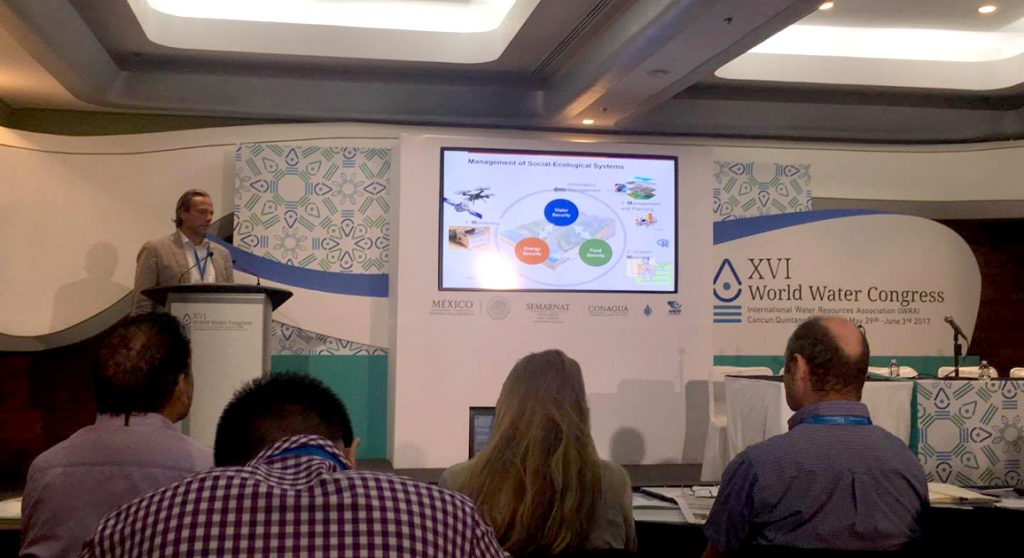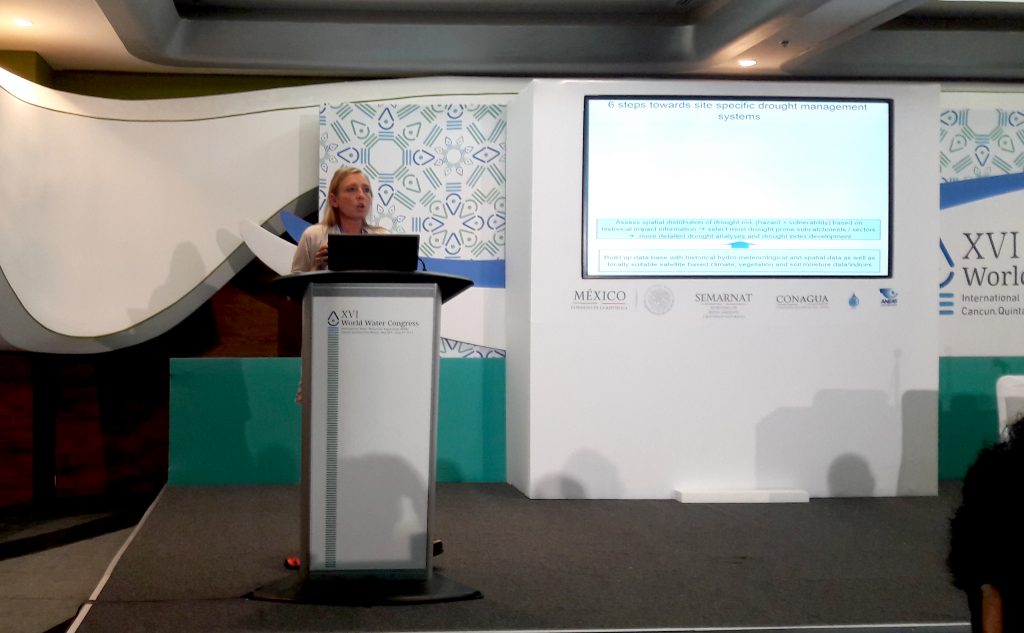The World Water Congress, organized by the International Water Resources Association (IWRA), the National Water Commission of Mexico (CONAGUA) and the National Association of Water and Sanitation Utilities (ANEAS) every 2-3 years, took place in Mexico this year from May 29th to June 2nd, 2017. Around 1000 experts from around the world met for knowledge exchange under the guiding theme “Bridge Science and Water Policy Making”. The Institute for Technology and Resources Management in the Tropics and Subtropics (ITT) of the TH Köln, together with Technische Universität Braunschweig and Asian Institute of Technology organized a special session on “Water Security and Climate Change: Challenges and Opportunities for Asia” referring to the conference organized under the same title in 2016 in Bangkok. The CNRD network was represented by Lars Ribbe and Alexandra Nauditt from ITT and by Tran Duc Trinh from Vietnam Academy of Water Resources.
The Congress ended with a call for action titled the “Cancun Declaration“
Prof. Dr. Lars Ribbe (Director, ITT), Prof. Dr. Rabi H. Mohtar (Texas AM University), Prof. Dr. Mukand Babel (AIT, Thailand), Alexandra Nauditt (Senior Researcher, ITT) and other representatives from the CNRD exceed Committee were speakers in the special session under the topic “Water Security in a changing world”. The session’s goal was to present and share the main outcomes of the previous conference “Water Security and Climate Change – Challenges and Opportunities for Asia” that was attended by over 150 scientists from Asia in November 2016.

“Empowering Young Water Professionals through Engagement in Global Water Community”
Amrita Gautam, Ph.D. Research Scholar at ITT and Nepal’s representative in the World Youth Parliament for Water (WYPW), was one of the panelists in the special session “Empowering Young Water Professionals through Engagement in Global Water Community”.
This session strongly emphasized the role of youth in the global water resources discussions. Aslam Khan, the advisor of the Pakistan chapter for youth, stated that water is the most important component of all SDGs and that he believes young professionals have the enthusiasm and energy to contribute to meeting these SDGs. Networks of youth should be further developed, and indeed, Alice Colson provided an announcement of IWRA´s forthcoming Young Professional Chapter. To provide evidence of youth’s important involvement, four young professionals shared their experiences and work on water related issues such as climate change, community based water quality monitoring and the Water Youth Network.
Special session on “Water Sanitation and Health: Ensuring Drinking Water”
Water is vital for human health. Water is an essential and necessary component for all aspects of life, including drinking and providing adequate hygiene and sanitation. Unfortunately, the provision of these two services can be expensive and difficult to attain and maintain, particularly in rural areas where communities are far from centralized service areas. In this panel, speakers considered drinking water allocation case studies in Chile, as well as two different parts of Mexico (Oaxaca and San Luis Potosi).
The first speaker analyzed the efficacy of water and land use planning processes in Chile. Mr. Cristian Palma Infante and his colleagues created a qualitative and quantitative approach to analyze the connection between water planning and land use planning to see if each plan took the other into consideration. This approach is useful for objectively determining the level of integrated planning for water and could have interesting implications in other places.
Moving from Chile to Mexico, Juan Carlos Tejeda-Gonzalez presented his work on how to improve integrated drinking water planning for rural areas in the Altiplano. This research involved a strategic environmental assessment of the planning process for areas that are underserved by the government. Based on this research, it was determined that stakeholder engagement at the local level has the potential to create lasting, community-driven solutions. However, currently achieving meaningful stakeholder engagement is difficult in Mexico, where necessary forums for such engagement are not always available.
These case studies all managed to effectively weave in the importance of bridging the gap between science and policy by focusing on the importance of institutional, legal, and social aspects of water delivery services for human health.
